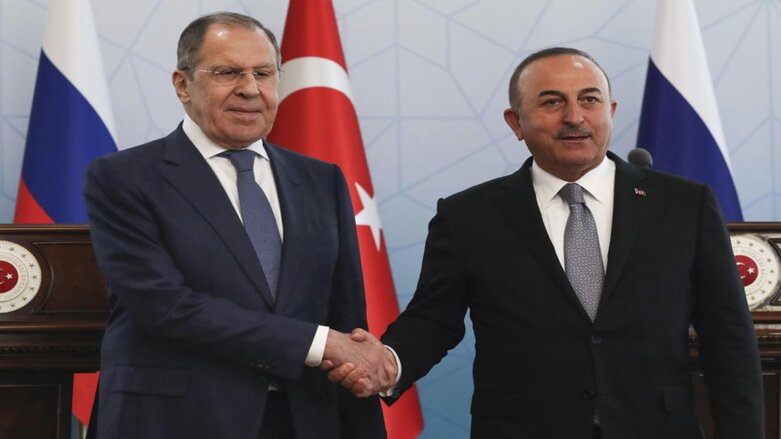Turkish, Russian Foreign Ministers discuss new meeting with Syrian counterpart

WASHINGTON DC, United States (Kurdistan 24) – On Saturday, while flying to Brazil to attend the inauguration of the country’s newly-elected president, Luiz Lula DeSilva, Turkish Foreign Minister Mevlut Cavusoglu explained to journalists that he had spoken by telephone with his Russian counterpart, Sergey Lavrov, following Wednesday’s tripartite meeting in Moscow among the Turkish, Russian, and Syrian Defense Ministers, along with their intelligence chiefs.
Read More: US warns against Turkish rapprochement with Syria
“Lavrov asked me when we will hold the tripartite ministerial meeting,” and we agreed to hold it in the second half of January,” Cavusoglu told journalists accompanying him on the flight to Brazil, as Turkish media reported.
“We haven’t decided where to hold it yet,” he continued. “It could also be held in a third country. We talked about some countries.”
“So, it could be in Moscow. It could be in a third country. We both said the same thing,” Cavusoglu explained.
These discussions appear to be proceeding along lines first outlined by Turkish President Recep Tayyip Erdogan. Erdogan spoke with Russian President Vladimir Putin on Dec. 11. Four days later, Erdogan proposed a series of meetings that would culminate in a tripartite summit involving him, Putin, and Syrian President Bashar al-Assad.
“The intelligence agencies, then ministers of defense, and finally ministers of foreign affairs,” should meet, Erdogan said, after which a tripartite summit should follow.
Agenda of Tripartite Meetings: Danger to Kurds, Syrian Opposition
Both Kurds in northeast Syria and the Syrian opposition have reacted with alarm to these negotiations, as it is too easy to see a deal-in-the-making.
Already on Friday, North Press Agency suggested that Turkey had “two main goals.” One, it said, was returning “Syrian refugees to their country.” Turkey hosts nearly four million Syrian refugees, who are increasingly unwelcome. Turkish elections are slated for June, and Erdogan would receive a populist boost at the polls, if he could say he had taken care of the issue.
The second Turkish goal, which North Press Agency described as “undeclared,” is “to abort the Autonomous Administration of North and East Syria (AANES),” the Kurdish-led government in northeast Syria, “and to create a demographic change by settling refugees in those areas without making concessions on other areas under its control in northwest Syria.”
Or, perhaps, Turkey would make concessions in northwest Syria, but the underlying deal would be that Turkey facilitates restoration of the regime’s control in exchange for ending the de facto Kurdish independence in northeast Syria, or, at least, curbing it significantly.
And, perhaps, as North Press Agency suggested, it would include diluting the Kurdish population of the northeast by a large-scale population transfer, involving the Arab refugees in Turkey
US Opposition to Tripartite Negotiations
Over the past week, the State Department, responding to questions from Kurdistan 24, issued two strong statements against the Russian-led diplomacy aimed at reconciling Turkey and Syria.
One U.S. objection concerns the threats to attack the Kurdish-led Syrian Democratic Forces (SDF), which Turkey’s Defense Minister made in the context of the tripartite discussions.
“We continue to make clear both privately and publicly that we strongly oppose military action, including a land incursion” into northeast Syria, a State Department Spokesperson told Kurdistan 24. “All parties should immediately de-escalate.”
Read More: US ‘strongly’ opposes Turkish attack on Syria; calls for immediate de-escalation
Moreover, the U.S. opposes reconciliation with the Assad regime, on the part of Turkey or any other party.
“We do not support countries upgrading their relations or expressing support to rehabilitate the brutal dictator, Bashar al-Assad,” a State Department Spokesperson told Kurdistan 24.
“As the Syrian people continue to suffer through nearly 12 years of war, our support for a Syrian-led political solution in line with UN Security Council Resolution 2254 remains firm,” the Spokesperson added. “We will continue to work with allies, partners, and the UN to ensure that a durable political solution remains within reach.”
Read More: US warns against Turkish rapprochement with Syria
